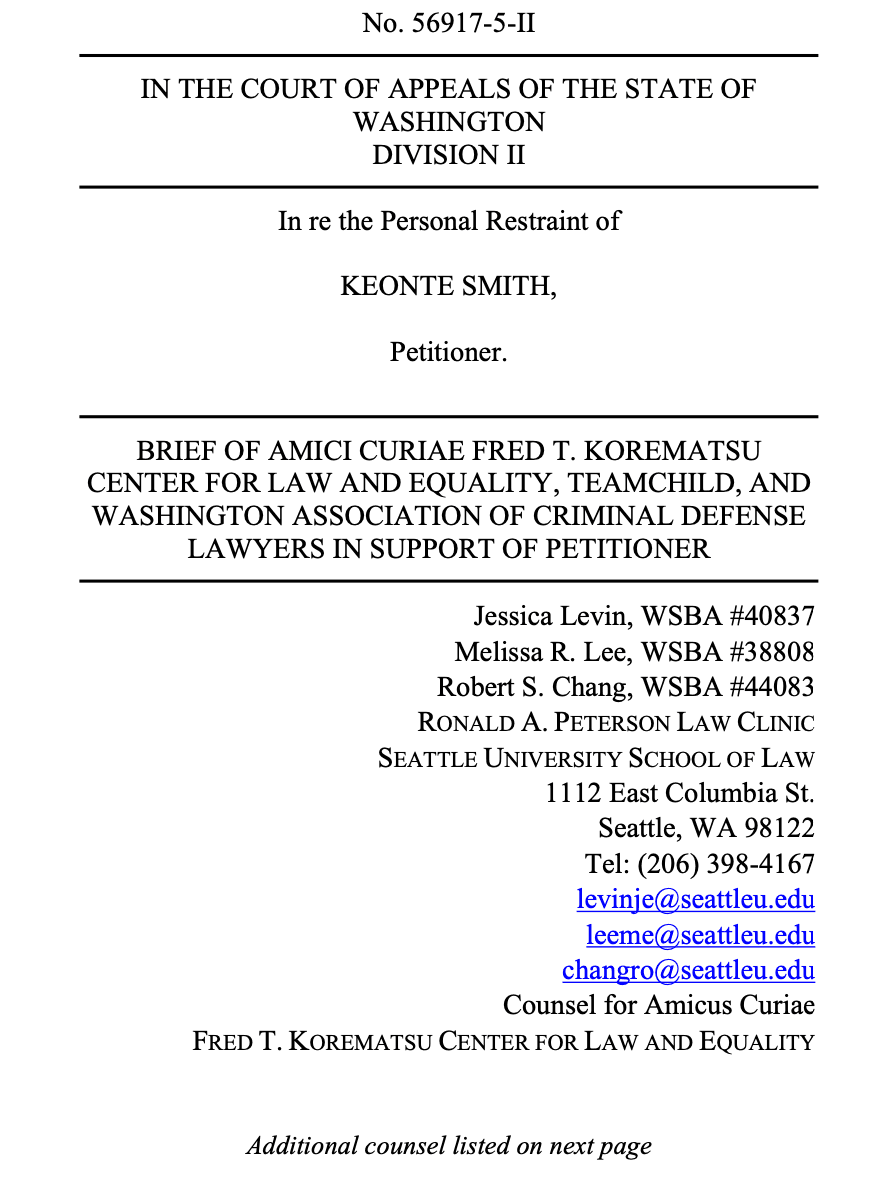
Summary of Article
This case presents the opportunity to account for adultification bias that operates against children of color in both the decline and sentencing contexts. Addressing how race rendered Keonte’s decline and sentencing proceedings unconstitutional on collateral review is appropriate under RAP 16.4(c)(2). The record declining him to adult court demonstrates the court perceived him as older and more culpable than the facts established. And the record of his Houston-Sconiers sentencing hearing is deficient such that it is impossible to rule out the possibility that Keonte’s race contributed to his lengthy sentence.
Regarding decline, this Court should recognize that adultification bias can tip the scales towards decline like it did for Keonte. It should instruct trial courts to be mindful of adultification bias in the discretionary decline context, as it did in the sentencing context in In re Pers. Restraint of Miller, 21 Wn. App. 2d 257, 505 P.3d 585 (2022), to ensure that courts account for juvenile brain science in applying the Kent factors.
In the sentencing context, this Court should recognize a presumption of a mitigated sentence under article I, section 14 for children prosecuted in adult court. This presumption would mitigate adultification bias and anchor bias, where judges remain tethered to harsh SRA sentences. This Court should also require written Houston-Sconiers findings so appellate courts can determine compliance with Houston-Sconiers and discern whether race played an impermissible role.